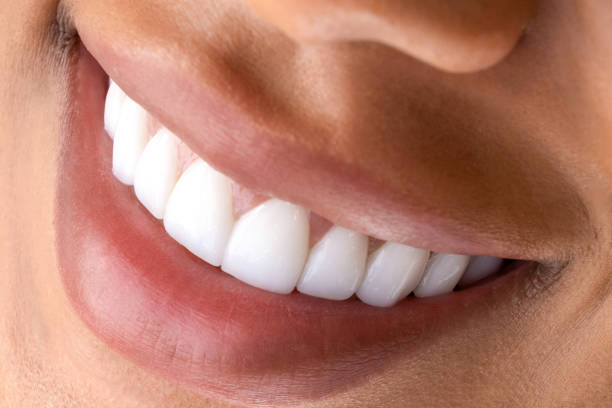
Veneers are a popular choice for enhancing smiles—after all, who doesn’t want a flawless set of pearly whites? But, as with any dental investment, it's natural to wonder: How long do veneers last?
The longevity of veneers depends on various factors, from the type of veneer to your lifestyle choices. In this Central Avenue Dental article, we’ll dive into everything you need to know to make an informed decision, ensuring your veneers last as long as possible.
Veneers are thin shells of porcelain or composite material placed on the front surface of teeth to improve their appearance. They're designed to correct imperfections like discoloration, gaps, chips, or misalignments, giving you a brighter, more balanced smile.
The primary purpose of veneers is to enhance the aesthetic of your smile. They act like a shield, covering imperfections and transforming your teeth into a perfect set. Veneers can help correct everything from minor misalignments to severe discoloration.
When you invest in veneers, you’re not just paying for a quick fix—you’re committing to long-term dental care. Knowing how long veneers last helps you maintain them properly and extend their lifespan, saving you both time and money in the long run.
There are several types of veneers available, each with its own unique properties that can impact their durability and how long they last.
Porcelain veneers are the most common and durable option. They are known for their strength and stain resistance, making them a popular choice for people seeking a long-lasting solution.
Composite veneers are less expensive than porcelain veneers but are not as durable. While they can be effective in transforming your smile, they tend to last for a shorter period.
Lumineers are a specific brand of veneers that are ultra-thin and require minimal preparation of the natural tooth. While they offer a more conservative treatment approach, their longevity is comparable to other porcelain veneers.
Several factors influence how long veneers last. By understanding these, you can take steps to extend the life of your veneers.
The quality of the material plays a significant role in veneer longevity. Porcelain veneers typically last longer than composite veneers due to their superior strength and resistance to staining.
Good oral hygiene is essential for keeping veneers intact. Brushing, flossing, and regular dental checkups can help prevent decay around the veneer and ensure the gums remain healthy.
Your daily habits also impact the lifespan of your veneers.
Eating hard or sticky foods can damage veneers. Try to avoid foods that are excessively hard, such as ice or candy, which can crack the veneer.
Smoking and excessive alcohol consumption can stain veneers or weaken the bonding material, potentially reducing their lifespan.
The expertise of your dentist in applying veneers can affect their durability. Veneers placed by a skilled and experienced dentist at Central Avenue Dental will likely last longer due to proper application and fitting.
Regular follow-up visits allow your dentist to monitor the condition of your veneers and address any minor issues before they become major problems. This helps prolong their lifespan.
Different types of veneers offer varying lifespans.
Porcelain veneers are the gold standard when it comes to longevity. With proper care, they can last 10 to 15 years, and in some cases, even longer.
Composite veneers typically last between 5 and 7 years, as they are less durable and more prone to staining compared to porcelain veneers.
Temporary veneers, used as placeholders while permanent veneers are being crafted, usually last a few weeks to a month.
No matter how well you care for your veneers, there will come a time when they need to be replaced. Here are the key signs to look out for:
Veneers, especially composite ones, can discolor over time due to foods, drinks, and smoking.
Chips and cracks are common reasons veneers may need to be replaced. Even though veneers are durable, they are not indestructible.
If your veneers feel loose or detached, this is a clear sign they need attention.
Gum recession can expose the edges of your veneers, leading to a gap between the veneer and the tooth. This makes replacement necessary to prevent decay.
Over time, general wear and tear can take a toll on veneers, necessitating replacement to maintain your smile's aesthetics.
Want to ensure your veneers last as long as possible? Here are some practical tips:
Good oral hygiene is the foundation of long-lasting veneers. Brush and floss regularly to prevent plaque buildup around your veneers.
Avoid chewing on hard objects like ice, pens, or nails, as these can cause veneers to chip or crack.
Seeing your dentist regularly ensures that any potential problems with your veneers are caught early, helping to extend their lifespan.
If you engage in contact sports or grind your teeth at night, wearing a mouthguard will protect your veneers from unnecessary damage.
Bruxism, or teeth grinding, is a leading cause of veneer damage. If you suffer from this condition, consult your dentist about options like night guards.
Wondering how veneers stack up against other dental solutions? Here's a quick comparison:
While crowns cover the entire tooth, veneers only cover the front. Crowns and CEREC Crowns may be more durable, but veneers are less invasive and still offer a long lifespan with proper care.
Dental implants are permanent solutions that last much longer than veneers, but they are also far more invasive and expensive.
Teeth whitening offers a temporary fix for discoloration, whereas veneers provide a more lasting solution to both aesthetic and functional issues.
Replacing veneers may seem daunting, but it’s actually quite simple.
Replacing veneers is typically not painful since the treatment is minimally invasive. Some patients may experience minor discomfort, but this is temporary.
The cost of replacing veneers depends on several factors, including the material and your dentist’s expertise. On average, veneer replacement can range from $800 to $2,000 per tooth.
At Central Avenue Dental, we’re dedicated to providing you with the best dental experience possible in the communities we serve. Our office combines cutting-edge technology with a welcoming, small-town feel. Dr. Kristin Abbas, our lead dentist, is committed to offering the highest quality of care through continuing education and the latest dental techniques. Whether it’s veneers, teeth whitening or full-mouth reconstruction, we’ve got you covered!
With our therapy dog, Remi, and our compassionate team, you’ll feel right at home in our newly renovated office. Experience personalized smiles and comprehensive care under one roof—schedule your appointment today!

So, how long do veneers last? The answer depends on various factors, but with the right care and maintenance, veneers can last a decade or more.
Whether you're considering porcelain, composite, or lumineers, understanding the factors that affect veneer longevity is key to maximizing your investment.
Ready to transform your smile? Start your journey today by reaching out to a trusted dentist at Central Avenue Dental.
Contact us today to beautify your smile and improve your oral health.
Phone
Monday - Wednesday
7:00am to 3:00pm
Thursday
8:00am to 3:00pm
Friday - Sunday
CLOSED